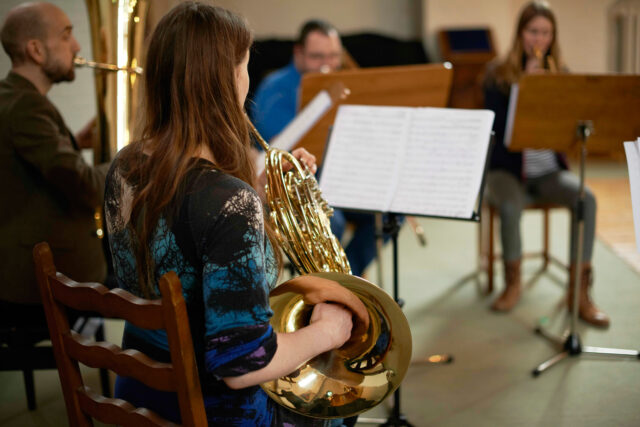New talent report shows:
Girls' choice of instrument is crucial for their careers

Childhood instrument choices have a big impact on a career. Photo: Institute for Cultural Life Analysis
The report aims to investigate why girls leave the musical food chain more often than boys. In addition, the report makes recommendations for initiatives to retain talent across gender and background.
Although girls and young women have become more prominent in music schools over the last 10 years (57%), female professional musicians only make up 25 per cent of the 14,024 professional musicians in Denmark in 2023, according to figures from Statistics Denmark.
The report shows that instrument choice is one of the things that can have a big impact on girls' career prospects:
"We knew that factors such as job opportunities and finances play a role in women's desire to stay in music. But the discovery that their choice of instrument in childhood also has a major impact on whether they pursue a career in music is new," says Jens Christian Nielsen, Head of Analysis at the Danish Institute for Cultural Analyses.
The women and men who participated in the survey point to primary school as the first significant encounter with music. Here, the introduction was characterised by a gendered approach to instruments, with boys choosing the 'loud' instruments, while girls either chose more 'gentle' instruments or singing.
Opportunities for interaction and networking
The choice of instrument is one of the aspects that determines young musical talent's ability to play with others. Being part of a community around music strengthens their musical and social skills. These are skills that are often developed outside the established educational environment and can be of great importance in a later career in rhythmic music, where networking is crucial.
"We know that playing together during the teenage years is of great importance for musical development, motivation for further education and the establishment of networks," says Jens Christian Nielsen.
The report, which is based on focus group interviews, summarises the underlying barriers to equal access to musical development. Girls and young women experience a competitive and male-dominated teaching or collaborative environment that can make it challenging to participate on an equal footing with their male peers.
The report shows that initiatives like SheCanPlay (and JazzCamp for Girls, Red.) gives girls and young women the opportunity to have positive experiences in communities where they can safely express themselves musically.
Recommendations from the report
The report has four recommendations for working with talent development in music. They are about what it takes to ensure equal access and favourable conditions for all young talents regardless of gender: Focused work on conscious and diverse instrument choice for music school students, competence development initiatives for teachers, more visible role models for young women and girls, and a continued focus on data collection and monitoring.
You can read the full Music Life Talent Report here.

